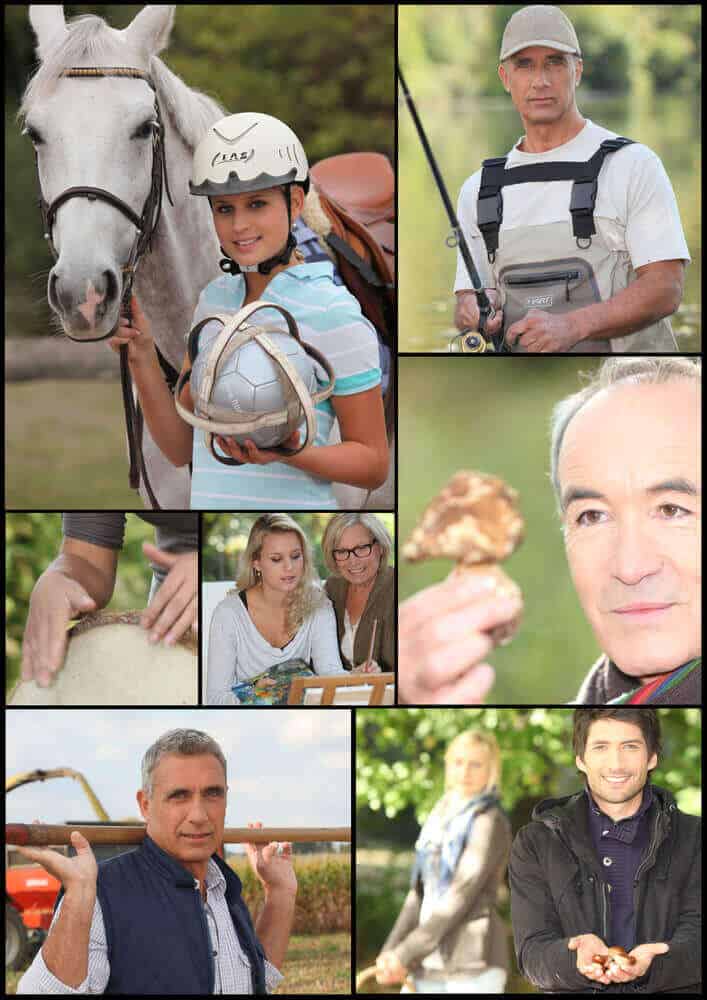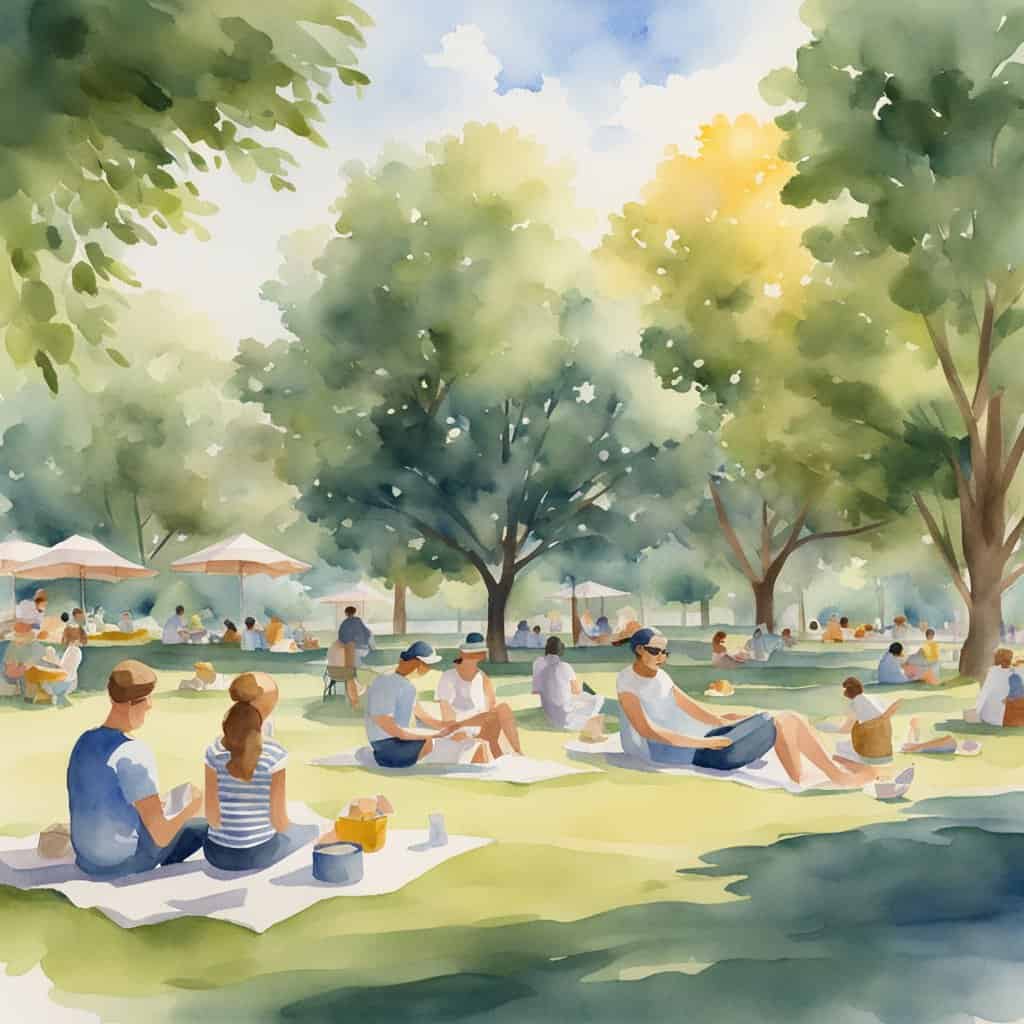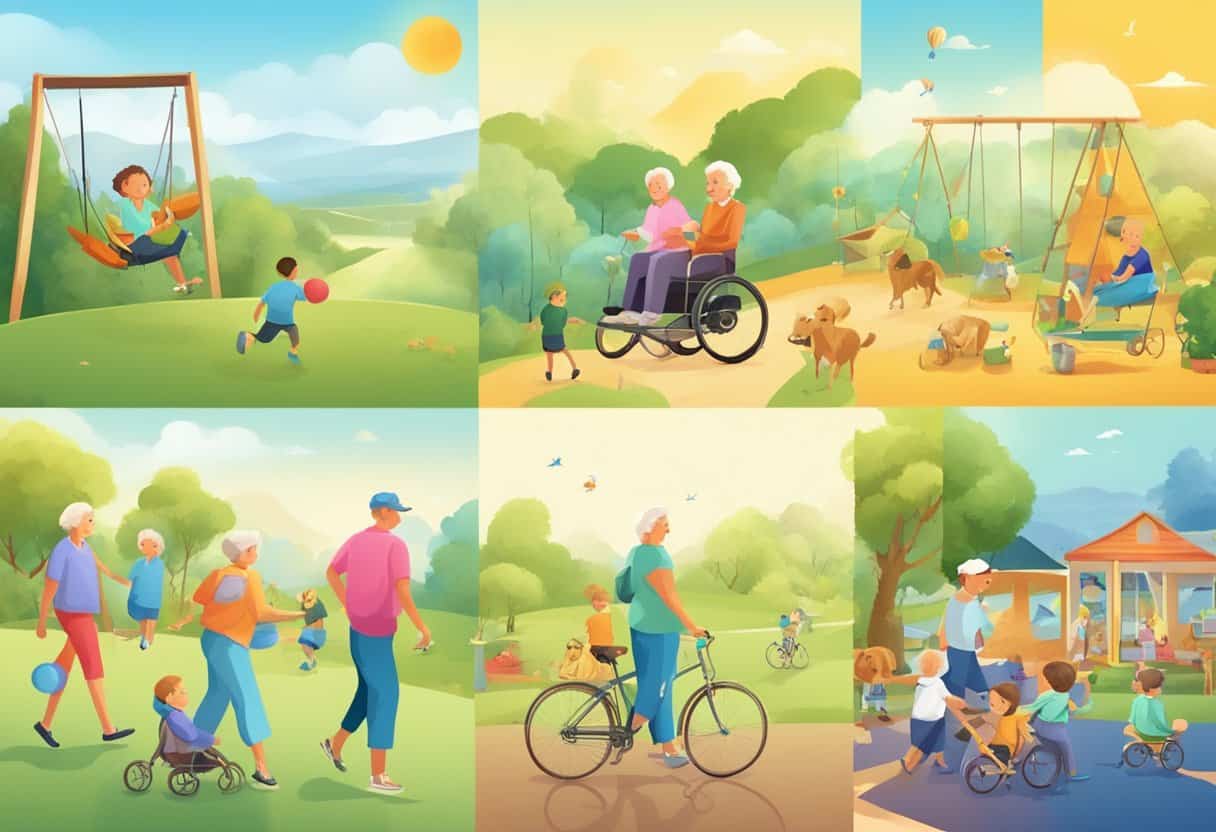Therapeutic recreation is a therapy that helps individuals restore, maintain or improve their physical, social, occupational, and recreational abilities. Therapeutic recreation improves physical and mental health, overall wellness, and quality of life. We hope this guide helps you to see therapeutic recreation in a new light and to understand its importance in helping people reach their full potential.
What Is Recreational Therapy?
Recreational therapy is an effective therapy shown to help improve health and happiness. It can meet the needs of individuals in everyday life or be designed for specific populations, such as a rehabilitation or gerontology setting, and is an integral part of the healing process.
Therapeutic recreation is often cited as one of the essential tools for reducing anxiety, depression, and pain levels. A growing body of research suggests therapeutic recreation can also be an effective tool for people with chronic health conditions. Here is but one of many articles showing the benefits of therapeutic recreation. Aquatic Therapy In Community Based Therapeutic Recreation: Pain Management In a Case of Fibromyalgia.
Therapeutic recreation specialists advocate for their clients to learn new skills and explore leisure and its meaning. In addition to treating mental illness, therapeutic recreation helps individuals with various other issues, such as cancer and arthritis. Furthermore, it offers an alternative to many who do not want inpatient treatment, as recreational therapy can be delivered in the home or community setting.
Four Parts Of The Therapeutic Recreation Process
When it comes to therapeutic recreation, four essential steps are:
1. Planning: Before embarking on any therapeutic recreation activity, it is essential to thoroughly plan what will be involved to ensure that your needs are met. The plan includes researching the different activity types and ensuring that the environment you will be using is safe and comfortable.
2. Implementing: Once you have planned the activity and ensured everything is set up according to your specifications, it’s time to start. During implementation, make sure that you are following the proper safety precautions.
3. Evaluating: After every therapeutic recreation activity is complete, it’s essential to reflect on how it went and gauge whether or not it was effective in achieving your goals. Then, do not hesitate to make any necessary adjustments accordingly.
4. Adjusting: As therapeutic recreation results may vary depending on individual preferences and needs, it is sometimes necessary to adjust the process accordingly, which includes tweaking the planning stages, implementing activities, and evaluating results.

Access And Inclusion
Inclusion in recreational opportunities encourages social interaction and builds relationships. In addition, recreation, leisure, and hobbies help improve physical health and mental well-being and are an important way for people with any limiting ability to achieve their full potential inside and outside the home.
It can help reduce isolation and loneliness, which are key contributors to mental health problems. Moreover, therapeutic recreation services can give people access to activities that may be difficult or impossible to do in their everyday lives. This access can improve physical health and well-being, reducing stress and building social networks.
When Is Therapeutic Recreation Used?
The use of therapeutic recreation is on the rise, and various therapeutic recreation interventions and activities can help people in multiple ways. An example of an intervention would be having a client with leg pain walk or run in water. Some of the most common leisure pursuits include hiking, biking, swimming, walking, mindfulness, painting, and spa treatments.
An excellent recreational therapist can adapt an activity or hobby so that anyone can participate- they will be able to adapt the activity depending on the person’s needs and preferences, e.g. the installation of a bowling ramp. The ability to adapt the activity or situation means that therapeutic recreation can help people in various ways, such as improving moods, reducing stress levels, and giving people a chance to socialize and express themselves.
The use of therapeutic recreation to help with health and happiness has a long history and is becoming more popular daily. It offers many benefits to the public, profession, practitioner, and organization, including socialization, physical activity, and relaxation. In addition, many organizations provide complementary programs that are tailored specifically to meet the needs of their members or patients.
Frequently Asked Questions
What is the difference between recreational therapy and rehabilitative therapy
Recreational therapy helps people with chronic pain, anxiety, and depression. Rehabilitative therapy helps people regain their physical abilities after an injury or surgery.
Are there any side effects to using therapeutic recreation?
Therapeutic recreation is an effective way to improve health and happiness. However, not everyone enjoys therapeutic recreation the same way, but overall, the most common side effects include feelings of euphoria, relaxation, and improved moods.
Is there an ethical code of conduct for a recreational therapist?
The Code of conduct varies from country to country. In the USA, you will find certified therapeutic recreation specialists (CTRS) who are members of the American Therapeutic Recreation Association (ATRA) and are certified by the National Council For Therapeutic Recreation Certification (NCTRC). These Therapeutic Recreation Specialists adhere to an ethical code of conduct that includes guidelines on informed consent, confidentiality, and limits to professional practice. In addition, therapists must report any incidents or situations involving abuse or neglect.
In Canada, some therapists are certified through the USA – NCTRC, but most belong to a provincial association and/or Canada’s organization, Canadian Therapeutic Recreation Association (CTRA). The provincial association includes:
British Columbia Therapeutic Recreation Association (BCTRA)
Alberta Therapeutic Recreation Association (ATRA)
Saskatchewan Association of Recreation Professionals (SARP)
Recreation Manitoba
Therapeutic Recreation Ontario (TRO)
Quebec Federation of Recreation (FQLI)
Nova Scotia Therapeutic Recreation Association (NSTRA)
Newfoundland and Labrador Therapeutic Recreation Association (NLTRA)
Why did you choose to become a Therapeutic Recreation Specialist?
I became a Therapeutic Recreation Specialist as I know first hand that recreational activities and hobbies improve our health and happiness. Through recreation, leisure and hobbies, everyone can express their true selves, increase their functioning, grow and live an abundantly full life.
Final Thoughts
Therapeutic recreation is an effective way to help individuals of all ages with a wide range of health and wellness needs. From treating physical disabilities to improving mental health, therapeutic recreation provides a therapeutic experience tailored to each individual’s needs. In addition, therapeutic recreation is accessible and inclusive, meaning everyone can participate regardless of their socio-economic status or ability. Visit our other guides to learn more about leisure, interventions and the benefits of therapeutic recreation for you and your loved ones.






